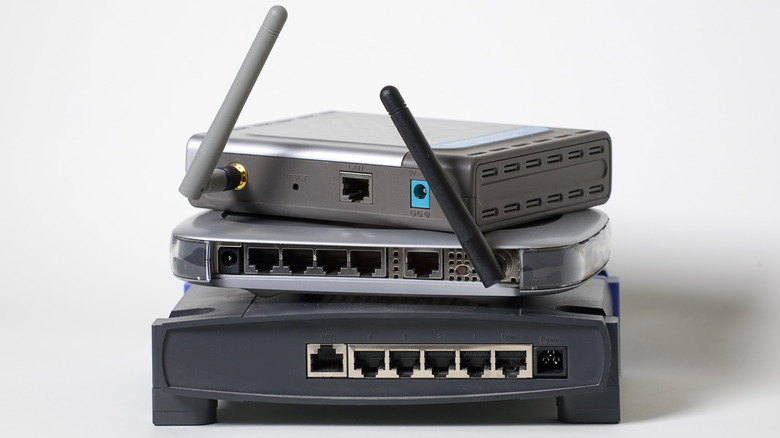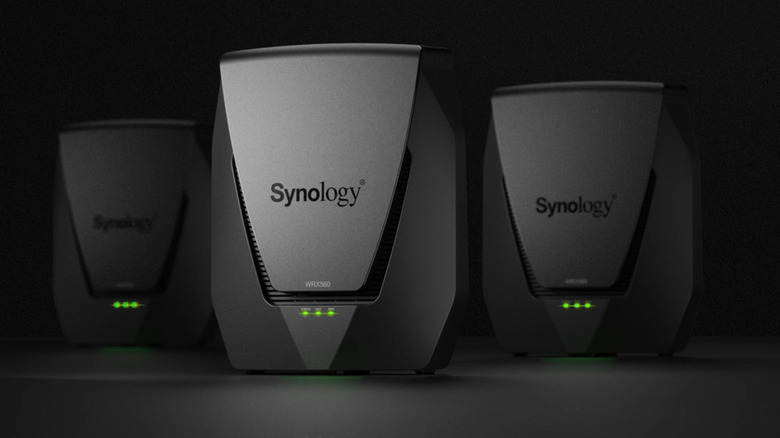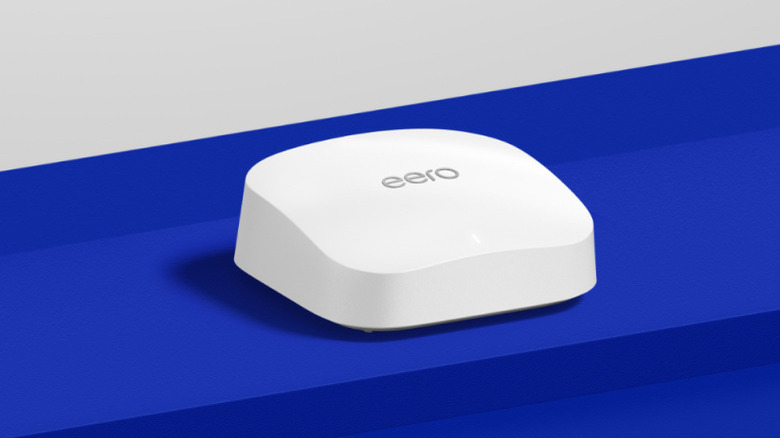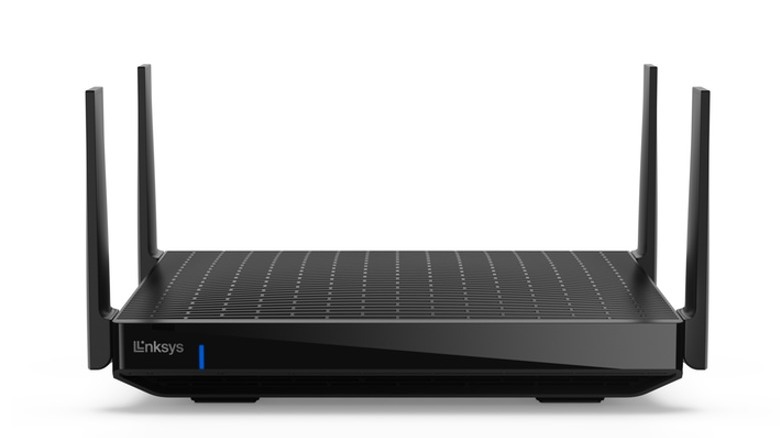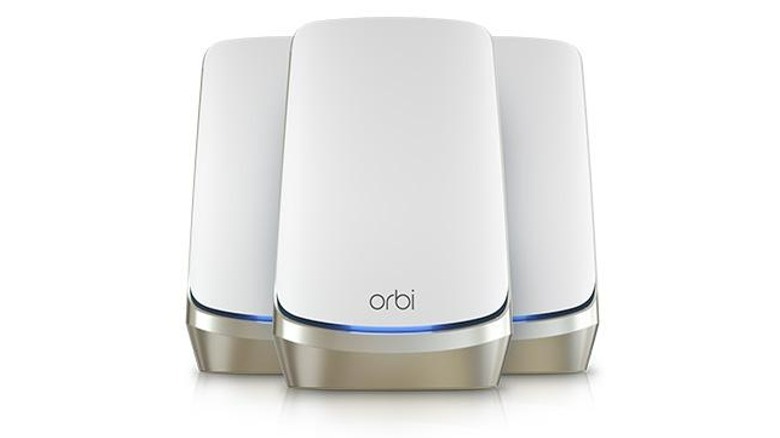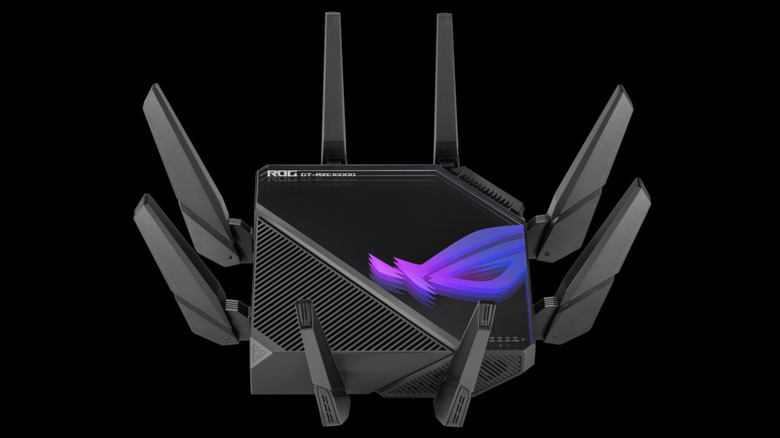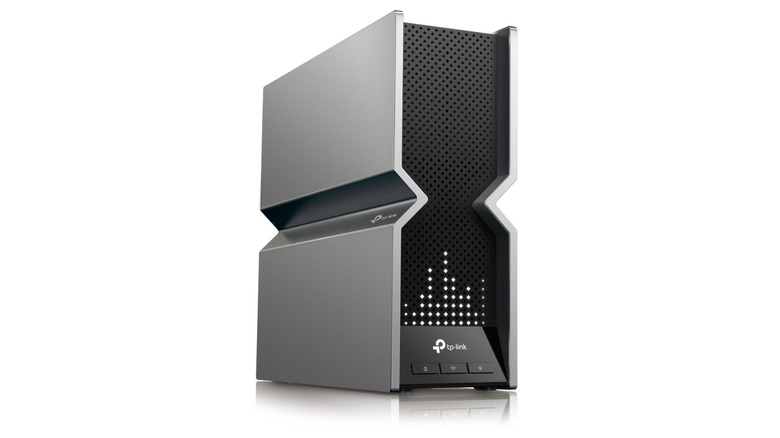Major Wireless Router Brands Ranked Worst To Best
We may receive a commission on purchases made from links.
Routers are getting better at doing their jobs, and if you are in the market for a replacement there are a number of new wrinkles you may not have encountered since your last trip to Best Buy. The widespread rollout of Wi-Fi 6E, introduced in 2020, provides users with faster data and lower latency, and many newer routers are ready to take advantage of that tech. Mesh networks are replacing extender networks and becoming the standard for whole-home coverage, and nearly every manufacturer has their own mesh tech to help cover any gaps and minimize lag.
When dealing with an ISP, the question of whether to rent or buy a gateway or router will always be presented after choosing a provider or settling on the lone provider available in your area. Even if you are comfortable with setting up your own network, the array of routers available can still be overwhelming. We aim to narrow that decision down a bit with this list of the best major wireless router brands.
Still, as always, remember that given the dozens of companies that produce routers, even the lowest spot on our list still beats out several other brands to get mentioned. Here are the best major wireless producers ranked.
7. Synology
A more recent entry into the field, Synology made its name in servers, security, and cloud solutions before recently adding routers to its product line. While at the bottom of our list simply for being the new kid on the block, Synology is already garnering praise for its router lineup while currently only offering three routers and a range extender.
Synology's WRX560 is a unique-looking little monolith that stands about 9 inches tall and wouldn't look out of place on an office desktop or a gaming rig, and has already accrued awards for its performance at the $200 price range. Their RT2600ac has also received high marks for its easy-to-use and robust suite of parental controls. Those controls allow for individual profiles for each of your children, Safe Search support, filters to block games and social media while permitting homework and research to be done, as well as over twenty different categories of content to filter or block.
The tri-band Wi-Fi 6 capabilities of the RT6600ax provide a higher-end product for home or office use, and Synology's Router Manager OS powers all of their products. Router Manager also integrates with an optional mobile app and helps set up multiple products to assemble a mesh network or adjust parental settings as needed.
6. Amazon Eero
Amazon-owned Eero is another entry into our list that is just starting to compete with some of the heavy hitters we'll encounter later. Primarily focused on mesh Wi-Fi systems using their TrueMesh tech, Eero uses routing algorithms to avoid signal drop-offs and performance adjustments based on network layout and connected devices.
Their current catalog consists of five routers, three of which are designed for Wi-Fi 6, while the newest Eero device includes support for Wi-Fi 6E. A subscription service, Eero Plus, is also offered that allows access to features like internet backup, ad and app blocking, content filters, and more for $10 a month or $100 annually. Eero also offers two range extenders, but a major benefit for Amazon customers has recently been added that could negate the need for them.
The unique new advantage Eero has is that their routers can pair with Amazon's fifth generation Echo Dot, turning the little Amazon hub into a Wi-Fi extender. According to Eero, the Dot can extend mesh Wi-Fi coverage up to 1,000 square feet. That's on top of the 1,500 square feet covered by a single Eero 6+ or the 2,000 feet that the Pro 6 and 6E cover. Amazon also offers several deals when shoppers bundle multiple Eero routers into one purchase or add other products like a FireTV Stick.
5. Google
Google and Amazon (by way of Eero) populate an interesting section of our list. They aren't ranked terribly highly due to their limited product selection and relatively short time in the router business. However, even the least tech-savvy among us know the Google and Amazon brands, making it all the more important to point out that just because one has heard of them doesn't necessarily mean either of those brands is the best. Google's offerings -– Google WiFi, Nest WiFi, and the new Nest WiFi Pro -– are a little pricier than comparable routers and lack common add-ons like USB, multi-gig LAN ports, or anti-malware software.
That being said, Google's newest offering, the Nest WiFi Pro, does boast some positives. For one, the little Nest router looks fantastic. The rounded square design is available in four colors and seamlessly blends in with its surroundings. It's easy to set up, making it a good option for folks uncomfortable with network setup.
Each router covers up to 2,200 square feet. The Nest WiFi Pro is also 6E ready, providing speeds up to 5.4 Gbps, and includes Matter, Google's new smart home system designed to work with existing systems from Amazon, Samsung, and Google Home, among others.
4. Linksys
Now we get into the router brands that the more knowledgeable computer users are familiar with. Linksys is one of those brand names that just seem to have been around since Al Gore allegedly invented the internet, and their longevity is a credit to the high-quality routers and network products they've been producing for years. They offer Wi-Fi solutions for business applications as well as their home Wi-Fi products like routers, network switches, and range extenders.
Linksys offers a wide array of options at every price point, highlighted by two different Wi-Fi 6E offerings for home and office users. The Atlas Max 6E and Hydra Pro 6E are both top-of-the-line routers, but the Atlas earns its higher price tag with vast improvements in nearly every category. However, even for the user not demanding the highest of high-end routers, Linksys offers dozens of options suited to most people's needs.
The Lynksys website uses filters to help narrow down choices based on shoppers' needs, and several of the routers feature Linksys' Intelligent Mesh technology to allow for easy additions of range extenders.
3. Netgear
Netgear has been around for over 25 years and specializes in routers, modems, digital canvases, and mobile hotspots. The company sells specialized product lines for gamers under the Nighthawk Pro Gaming brand and whole-home mesh Wi-Fi solutions under the Orbi line of routers.
Netgear's experience shows in its product features and design. The Nighthawk XR1000 looks like something out of "Battlestar Galactica," with sharp angles and red highlights on its black casing. The included DumaOS software helps gamers eliminate lag by prioritizing apps, reducing ping, and providing geofencing to connect only to the best-performing servers. The top-of-the-line Orbi 960 is a subtler, rounded powerhouse. It's about a foot tall and features Wi-Fi 6E, quad-band Wi-Fi, and a 10 GB internet port while providing 3,000 square feet of coverage. This beast is expensive, but it can handle just about anything users throw at it.
Of course, Netgear offers routers that cater to users that aren't trying to run dozens of streaming devices at once as well. The company also provides internet security by way of its Armor subscription service, and several of its products also support a hefty suite of parental controls as another annual subscription.
2. ASUS
ASUS is one of the best-known manufacturers in our list, as they produce a wide variety of computer components including laptops, monitors, keyboards, motherboards, and even gaming-centric phones. Their Republic of Gamers brand extends to wireless routers featuring LED lights and aggressive designs centered around multiple external antennas. The ROG Rapture GT-AXE16000 represents both the look and the feature list ASUS prides itself in as one of the top router brands, and the Rapture has won multiple awards based on its quad-band 6E capabilities and insane performance potential.
However, ASUS also offers subtler options through their Zen line of mesh routers, offering a great amount of wireless coverage in a casing that can blend in anywhere in the home. These routers are no less powerful than the Republic of Gamers line — they just don't advertise their capability quite as harshly.
As with the other top router brands on our list, ASUS offers subscription services for security in their AiProtection. However, unlike some of the others we've mentioned, ASUS' parental controls are included with their routers and don't require a separate subscription.
1. TP-Link
TP-Link is a networking company, first and foremost. A glance at their website puts their routers, mesh Wi-Fi, and switches front and center, a focus that lands them at the top spot on our list. As with most companies, they have branched out into some smart home products, but the majority of their catalog remains in the networking category, and their wide array of options highlights that dedication to the router space.
TP-Link's routers are greatly varied in their capabilities and design. Their gaming options, like the Archer AXE300, feature the high-performance specs PC gamers demand, such as dual 10 GB wired ports, Wi-Fi 6E, VPN client support, and ultra-high speeds. Their Deco line is a more cylindrical approach than comparable products from other brands, with a more stable base and a modern design that provides 3,300 square feet of mesh Wi-Fi coverage. They even offer a few Wi-Fi 7 options like the impressive Archer BE800, although the average user still has a while before that's something to consider.
Overall, TP-Link's routers are comparable to the best on the market but offered at a lower cost. Their Tether app is also lauded as a fantastic and easy-to-use setup assistant. The HomeShield security option is, like many of its competitors, another subscription-based suite of software, but a basic version of it is provided for free.
